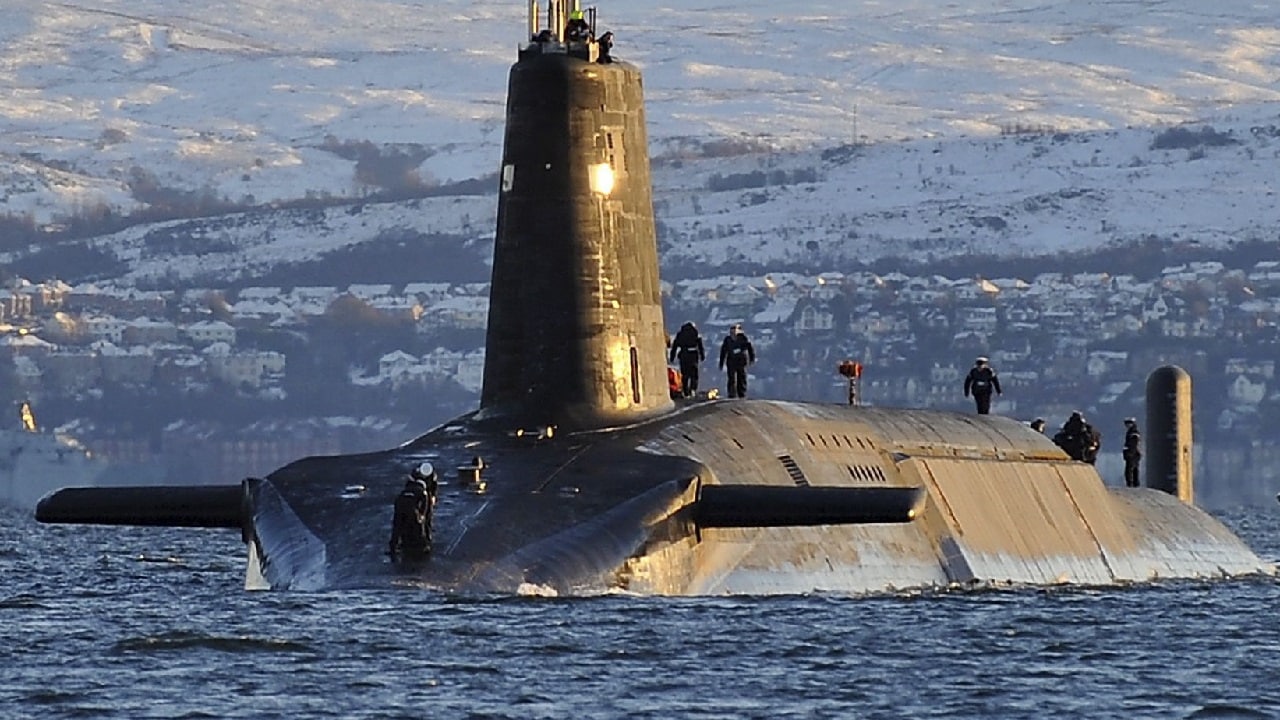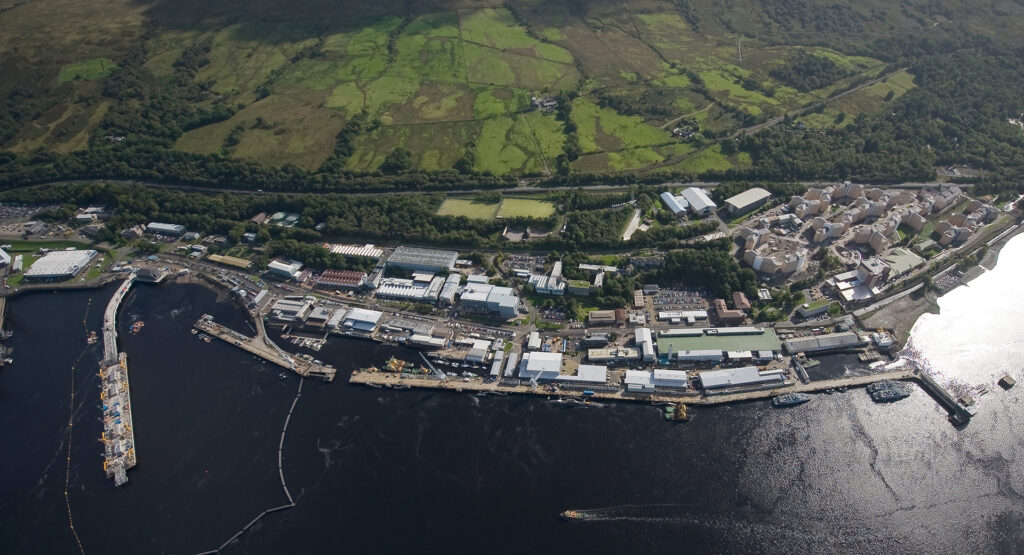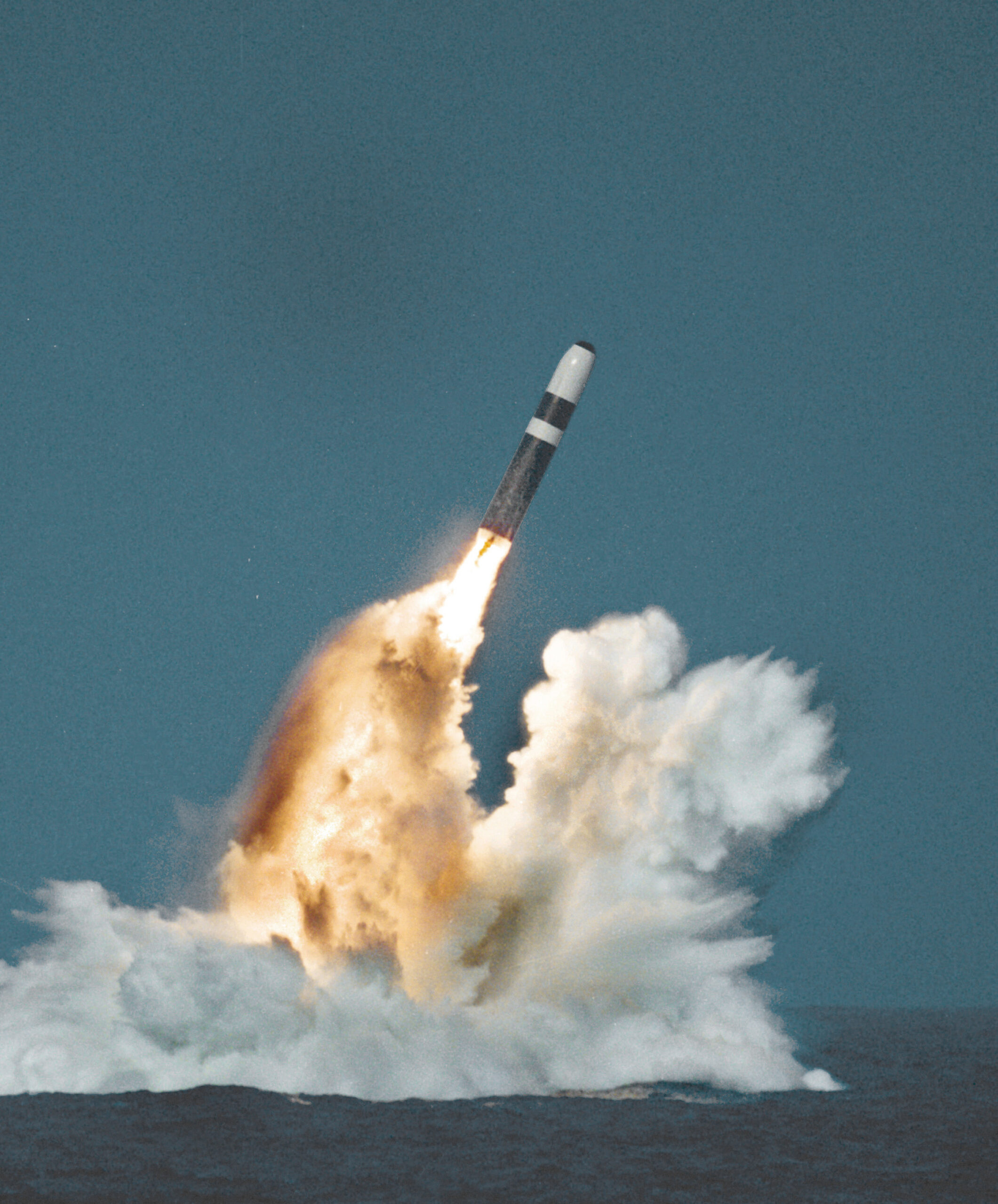British Nuclear Submarine in Danger, Highly-Sensitive Informations About Its Movement Exposed
According to sources cited by British media, the sensitive documents found on the serviceman’s phone included highly-sensitive informations regarding the nuclear submarine’s movements while in operation.
(DEFENCE SECURITY ASIA) — A British Royal Navy serviceman stationed on a Vanguard-class nuclear submarine has been detained by authorities for allegedly stealing classified information about the submarine.
Military police at the UK’s nuclear submarine base in Faslane, Scotland, discovered secret documents related to the nuclear submarine on his mobile phone.
The British serviceman, identified by local media as 36-year-old Marcus Gauntlett, is being held on charges of violating the country’s Official Secrets Act (OSA).
The Vanguard-class nuclear submarines serve as the country’s nuclear deterrent and are equipped with “Trident 2 D5” intercontinental ballistic missiles (ICBMs).
According to sources cited by British media, the sensitive documents found on the serviceman’s phone included highly-sensitive informations regarding the nuclear submarine’s movements while in operation.
This means the serviceman had access to sensitive information about the locations where the nuclear submarine was operating, potentially exposing it to the risk of being tracked or detected by enemy submarines.

Such information could endanger the Vanguard-class nuclear submarines and their crews.
Submarine crews, whether on conventional or nuclear submarines, are prohibited from carrying mobile phones.
A spokesperson for the UK Ministry of Defence confirmed that a Royal Navy serviceman working on one of the country’s nuclear submarines had been detained to assist with the investigation.
British media reported that the current investigation does not point to espionage activities by the serviceman, but the discovery of documents related to submarine movements might shift the focus of the investigation.
The security of the Vanguard-class nuclear submarines is now reportedly at risk due to the alleged leak of their movements.
For submarines, secrecy of movement is considered their “primary weapon,” and compromising this secrecy is akin to “suicide,” particularly for nuclear-powered and armed submarines.

The UK’s four Vanguard-class nuclear submarines—HMS Vanguard, Vengeance, Victorious, and Vigilant—equipped with Trident intercontinental ballistic missiles, are based at HMNB Clyde in Faslane, Scotland.
The Vanguard-class submarines, which have a total displacement of 15,900 tons, can carry up to 48 Trident missiles, each capable of striking targets up to 4,000 nautical miles (approximately 7,500 km) away.
These aging submarines are scheduled to be replaced starting in 2030 with four new Dreadnought-class nuclear submarines currently being built by BAE Systems at its Barrow-in-Furness shipyard.
Last month, the United Kingdom convened an emergency security meeting after a Royal Air Force (RAF) P-8 Poseidon maritime patrol aircraft detected a Russian Kazan-class nuclear submarine off the UK’s west coast.
The 13,800-ton Russian nuclear submarine was detected after the RAF patrol aircraft deployed sonar buoys to locate submarine activity underwater.

The Russian submarine was believed to be heading towards Scottish waters, home to the UK’s nuclear submarine base at Faslane.
The presence of the Yasen-class nuclear submarine off the UK’s coast alarmed NATO leaders, who are concerned that the Russian submarine might be trying to identify weaknesses in the alliance’s member states.
The discovery of the Yasen-class Russian nuclear submarine in UK waters follows President Vladimir Putin’s vow to “punish” the West for supplying Ukraine with long-range missiles like the ATACMS to attack Russia and allowing Kiev to utilize £40 billion (RM239 billion) worth of frozen Russian assets.
The Yasen-class nuclear submarines are among the most advanced in the Russian Navy’s fleet, capable of carrying a variety of weapon systems, including the hypersonic “Tsirkon” missiles. — DSA



Comments are closed.